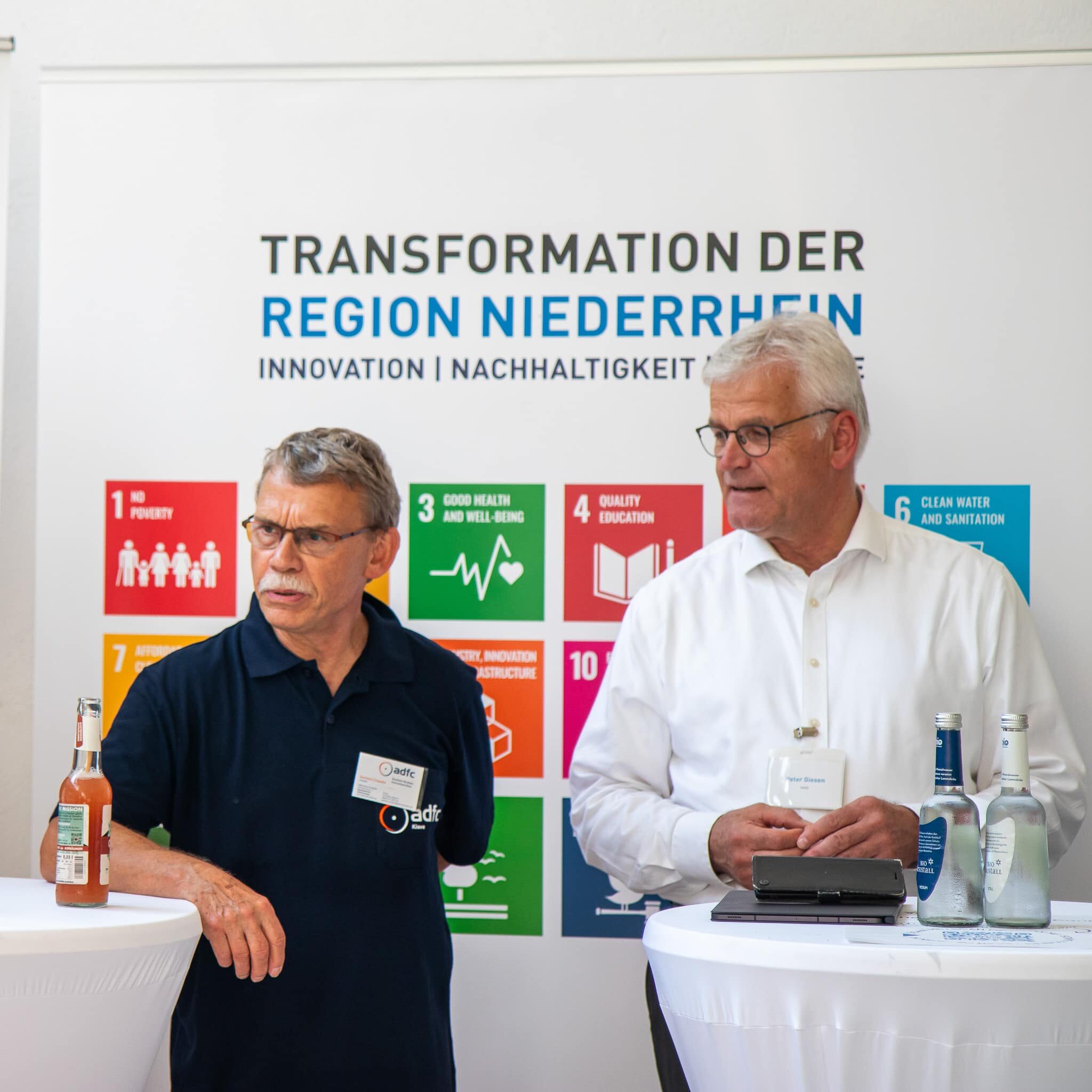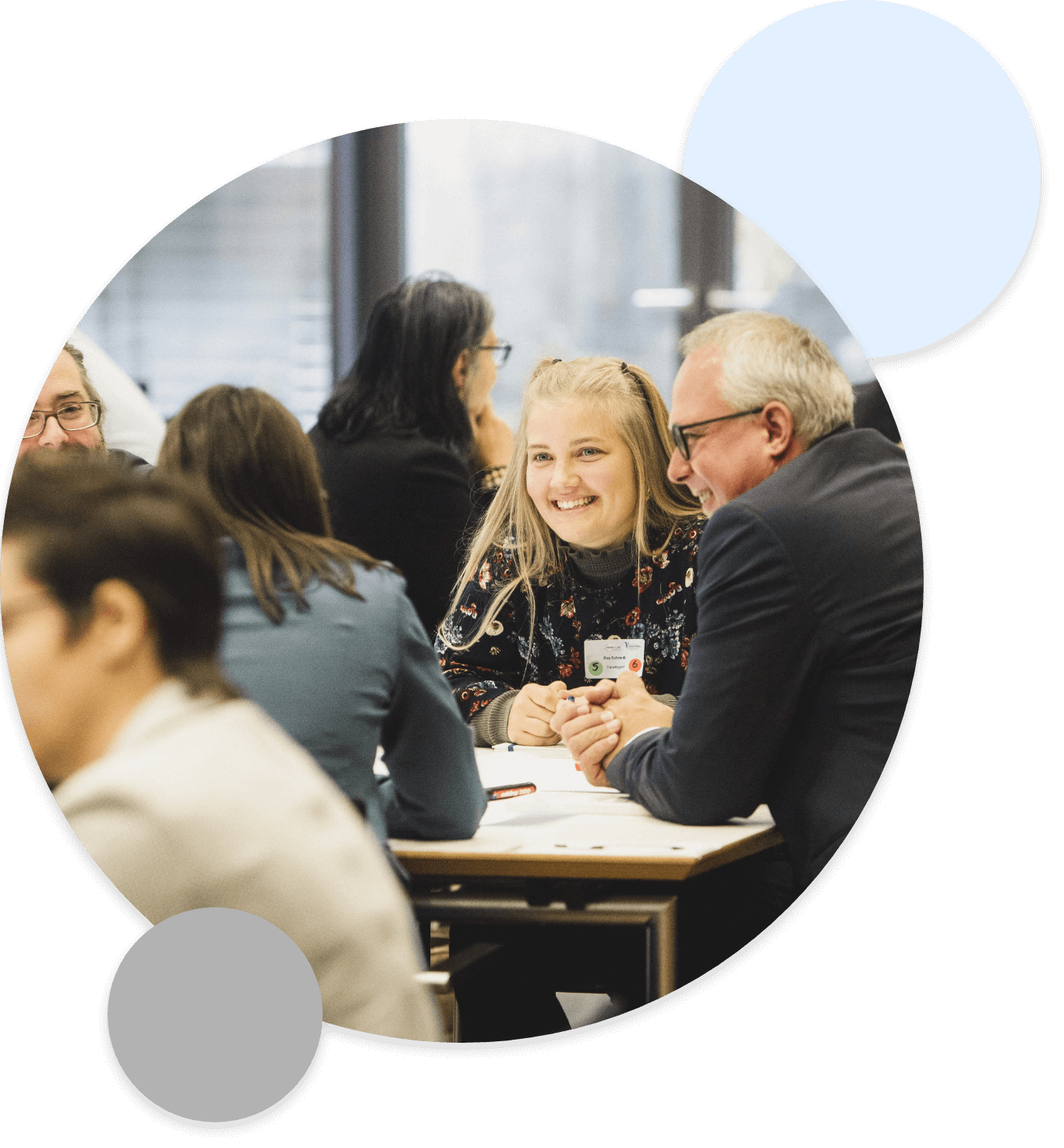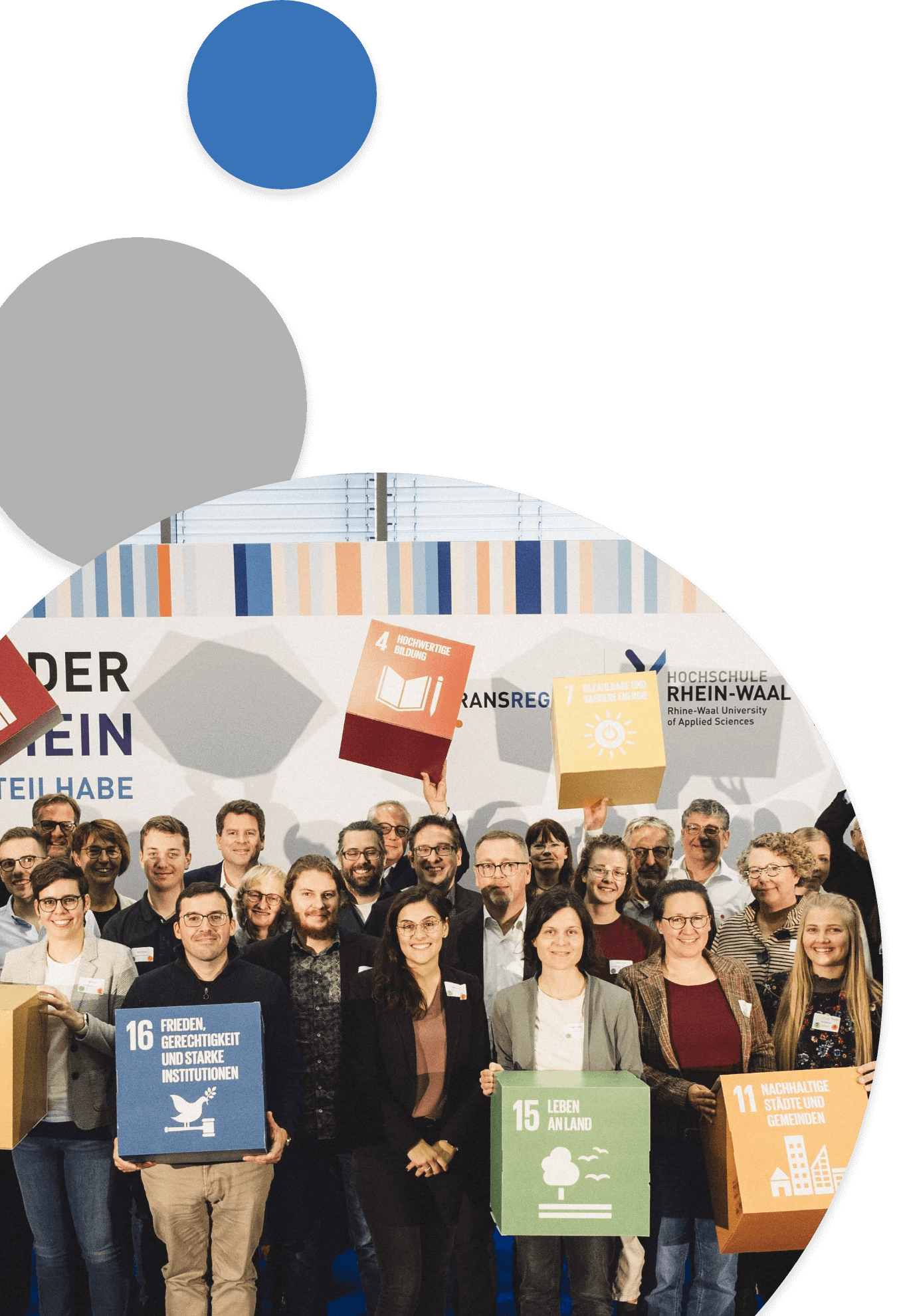
Mobility in Kleve: on the way to a sustainable solution
“What’s going on with mobility in Kleve?” Florian Gaisrucker, Innovation Manager Society, opened the panel discussion at DialogPunkt Kleve with this urgent question. We at TransRegINT had invited experts and Kleve residents to talk about the future of mobility in our region. It was an evening full of exciting discussions, inspiring visions and concrete solutions.
The current situation: a wake-up call from Fridays for Future
Jannik Berbalk from Fridays for Future Kleve put his finger in the wound. He called the current traffic situation in Kleve ” lousy”. The high proportion of private transport by car is a major contributor to emissions. “In the Kleve district, over 40% of emissions come from car traffic. That is simply unacceptable,” he emphasised. The extensive structure of the region makes it difficult to switch to more sustainable modes of transport. However, Jannik Berbalk also pointed out that there are alternatives: “Look at the Netherlands, they show how mobility can be made more climate-friendly.”
Bicycles: an alternative to the car
Gerhard Cröpelin from the Allgemeiner Deutscher Fahrrad-Club (ADFC) showed how cycling can be made more attractive in Kleve. “A lot is already happening in Kleve, such as leasing bikes through the job,” said Gerhard Cröpelin. “But we need a better network of cycle paths and the option of taking bikes on buses.” Such buses already exist in the Netherlands and Lower Saxony. With a smile, he added: “You have to have visions. In the Netherlands, there is no delivery of pupils to the school door, why not here?”
NIAG: Electrification and on-demand transport
Peter Giesen, Member of the Executive Board of NIAG, spoke about the challenges and opportunities of local public transport. “The electrification of our bus fleet is an important step. In addition, it remains necessary to improve the service, especially in rural areas. People will only be prepared to change their behaviour and use public transport more frequently if it becomes more attractive,” he explained. Public transport would have to run more frequently and more reliably in order to become more attractive. One particularly interesting concept is on-demand transport, which responds flexibly and individually to the needs of users. He added that local authorities define the services that transport companies have to provide in local transport plans. At the end of the day, the question must be allowed: “Who pays for it?”
The discussion: an open exchange
The discussion was lively and many members of the audience got involved. Topics such as the flexibility of bus routes, the challenges posed by the shortage of skilled labour and the question of the economic viability of local public transport were discussed in depth. Jannik Berbalk emphasised the need for more reliable and more frequent connections. “We need public transport that really works and is affordable for everyone,” he demanded. Peter Giesen pointed out the economic constraints under which local public transport operates.
Conclusion: Mobility is key for Kleve
In the end, everyone agreed that mobility in Kleve must change. Andreas Lietschulte saw the discussion as an opportunity to recognise mobility as an important component of regional attractiveness. “Good mobility increases the attractiveness of the region,” he summarised. Peter Giesen emphasised the importance of small but effective steps to resolve the deadlocked situation. “It takes small steps to soften opinions and improve the situation,” he said. Gerhard Cröpelin campaigned for a more bicycle-friendly city. “Let’s make cycling more attractive so that we can leave the second car at home,” he appealed. Jannik Berbalk, who made his last public appearance that evening before retiring to private life for a while, concluded with strong words: “Now is the time to act. Solutions already exist. Politics is the key point.”
Your contribution counts!
We would like to thank everyone who took part in the public debate and contributed their ideas and suggestions. Every small step, whether it’s switching to cycling or using public transport, contributes to more sustainable transport in our region. Let’s shape the future of mobility in Kleve together, because together we can get things moving!




Kommentare